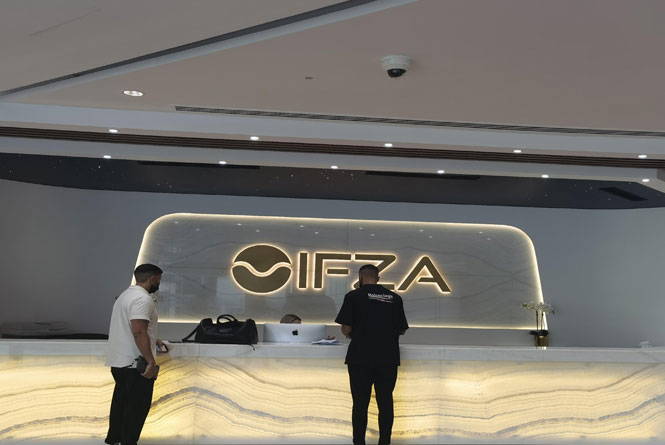In recent years, the Middle East e-commerce market has shown a strong momentum of development, attracting the attention of many e-commerce platforms and enterprises around the world. Its unique market environment, huge consumer groups and constantly improving infrastructure provide a broad space for the development of the e-commerce industry.

1. Market size and growth trends
rapid growth: In recent years, e-commerce in the Middle East has shown a strong momentum of development, and the market scale has continued to expand. For example, the e-commerce market in the Middle East is about $31.7 billion in 2021 and is expected to exceed $49 billion in 2025. More forecasts show that from 2025 to 2033, the compound annual growth rate of the Middle East e-commerce market will reach 21.58, and the market size is expected to reach 57 billion billion US dollars in 2026.
Market segment growth: electronic products, fashion clothing, household goods, etc. are the main categories of the Middle East e-commerce market, and the market size of these categories continues to grow.
2. Consumer characteristics and needs
young population structure: the population structure of the Middle East is young, with 70% of the population under the age of 30, which has injected a steady stream of vitality into the e-commerce market. Young consumers have a high acceptance of new things, are willing to try online shopping, and pursue fashion, technology and diversified and personalized products.
High consumption power: The per capita GDP in the Middle East is generally high, especially in the UAE, Saudi Arabia, Qatar and other countries, where the unit price of online shoppers far exceeds the global average.
Changes in consumption habits: With the popularity of the Internet and the rise of mobile payment, the shopping habits of consumers in the Middle East are gradually shifting to online. Smartphones have become the mainstream of online shopping, with a high proportion of mobile terminals, and more than 60% of transactions are completed through mobile phones.
3, Policy Support and Infrastructure
policy support: Governments in the Middle East are actively promoting the development of the e-commerce industry and have introduced a series of supporting policies. For example, Saudi Arabia's "2030 Vision" explicitly proposes to increase the share of the digital economy to 20% and set up a $5 billion technology investment fund; the UAE's "Digital Economy Strategy" plans to increase the contribution of the electronics industry to GDP to 5% by 2025.
Perfect infrastructure: The Internet penetration rate in the Middle East is relatively high, and the Internet penetration rate in the UAE, Saudi Arabia and other countries is above 99%. At the same time, governments are also stepping up efforts to build digital payment systems and logistics infrastructure to provide strong support for the development of e-commerce.
4. Technological innovation and integration
technological innovation: The application of technologies such as artificial intelligence, Internet of Things, and 5G is driving the innovation and development of the Middle East e-commerce market. For example, the application of AI technology in electronic products is becoming more and more extensive, which improves the user experience of the product; the popularization of Internet of Things technology enables electronic products to be connected to each other, realizing real-time data sharing and remote control.
Cross-border integration: the e-commerce industry is carrying out cross-border integration and innovation with other industries, such as the combination with medical, education, entertainment and other industries, to create more diversified products and services.
5. Regional cooperation and globalization layout
regional cooperation: Countries in the Middle East are strengthening regional cooperation to jointly promote the development of the e-commerce industry. For example, the gradual lowering of trade barriers between Gulf Cooperation Council (GCC) countries has facilitated free trade in e-commerce.
Global layout: With the acceleration of globalization, Middle East e-commerce companies are also actively seeking global layout and expanding the international market. At the same time, international e-commerce giants are also increasing their investment in the Middle East market to promote market competition and development.
Zhuoxin Enterprise provides agency services such as domestic and foreign company registration, bank account opening, annual tax return, agency bookkeeping, trademark registration, ODI Overseas Investment Filing, etc. If you have any business needs in this area, please feel free to consult our online customer service!










Zhuoxin Consulting relies on its Chinese service network and Dubai executive team to provide professional one-stop business services without communication barriers for Chinese companies to enter the Middle East market. Its business covers company establishment and maintenance, accounting and taxation, bank account opening, PRO services and business services.
Zhuoxin Consulting has high-quality business resources and maintains close cooperation with many free zones, bankers and tax departments in the UAE to escort your expansion in the Middle East market.
厦门卓信世野信息咨询有限公司 地址:厦门市思明区厦禾路189号银行中心2712B单元
免责声明:本网站与任何政府机构均无关联,我们提供第三方咨询和公司注册支持。